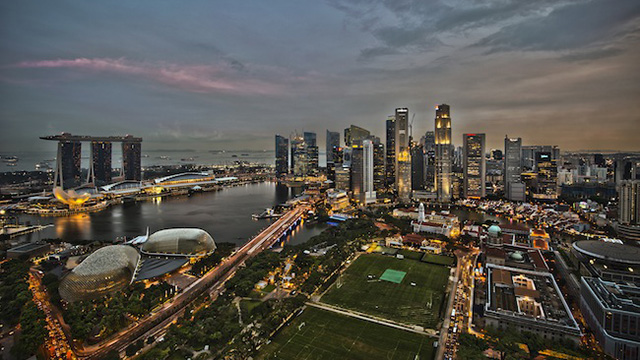SUMMARY
This is AI generated summarization, which may have errors. For context, always refer to the full article.

SINGAPORE – Singapore’s ruling party needs to reconnect with voters or face more severe setbacks in national polls, analysts said Sunday after a massive swing to the opposition in a by-election dominated by debate over the rising cost of living and immigration.
It was the second by-election defeat in eight months for the People’s Action Party (PAP), which has been in power for more than 50 years.
Saturday’s (January 26) vote for a vacant seat in the sleepy suburb of Punggol East became a lightning rod for a national debate over the cost of living, immigration and other issues raging in social media.
The opposition Workers’ Party won 54.5 percent of the vote — exactly the same share garnered by the PAP when it last took the seat in the May 2011 general elections.
“The swing of votes has been massive,” Reuben Wong, an assistant professor of political science at the National University of Singapore, told AFP.
Wong said defeated PAP candidate Koh Poh Koon, 40, a prominent surgeon who had never been in politics and was introduced by the party just weeks before the vote, was seen as an “elitist” figure.
By contrast, he said Workers’ Party candidate Lee Li Lian, a 34-year-old corporate trainer running for a second time, was regarded as more representative of Singapore’s “heartlanders” — the majority who live in public housing.
“The PAP is lacking grassroots candidates that are grounded in the communities,” said Bridget Welsh, an associate professor at Singapore Management University.
“The formula of ‘best and brightest’ is not working,” the political scientist added, referring to the PAP’s traditional approach of fielding academic achievers and successful professionals.
Candidates do not have to live in the districts where they are running for office.
“The erosion of support in this contest is so significant that it cannot be dismissed as an anomaly. The PAP needs to reevaluate its engagement with the electorate and policies, and work to rebuild trust or it will face many more Punggols,” Welsh said.
The setback came less than two years after the PAP, which has been in power for more than 50 years, suffered its worst general election showing in May 2011 when its share of votes fell to an all-time low of 60 percent.
The Workers’ Party captured six seats, tripling the number of opposition MPs in the 87-member parliament — a small presence by international standards but a major development in a city-state known in the past for rigid social controls.
Prime Minister Lee Hsien Loong said after Saturday’s vote gave the Workers’ Party a seventh seat that reforms would take time to produce results, vowing to present a “report card for voters to judge in the next general elections”, which do not have to be called until 2016.
Since the 2011 vote, the government has promised to spend billions of dollars on public housing, mass transport and social programs.
It has slowed the intake of foreign workers and immigrants, who have been accused of competing with citizens for jobs and public services and driving up prices of homes.
More than a third of Singapore’s population of 5.3 million are foreigners.
Saturday’s vote was called to fill a seat left vacant when then parliament speaker Michael Palmer stepped down and quit the PAP in December after he confessed to an extramarital affair.
But the scandal was relegated to the sidelines and the campaign’s focus was largely on socio-economic issues in Singapore, which has become one of the costliest cities in Asia.
The Workers’ Party had found itself in a similar situation last year when one of its MPs also quit over an extramarital affair.
But unlike the PAP, it retained the seat comfortably in a by-election in May, underscoring the growing appeal of an alternative political voice to Singaporeans.
The PAP first came to power in 1959 when colonial ruler Britain introduced self-rule in Singapore, which became a republic in 1965 after a brief union with Malaysia. – Rappler.com
Add a comment
How does this make you feel?
There are no comments yet. Add your comment to start the conversation.